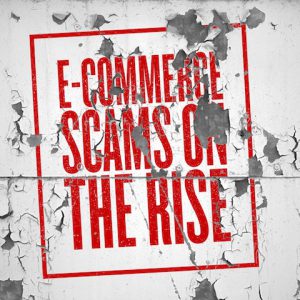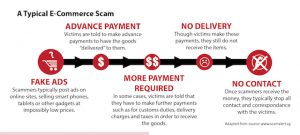E-commerce scams on the rise
If a deal is too good to be true, you should be immediately wary.
 In Singapore, overall crime in 2015 increased by four percent, from 32,315 cases in 2014 to 33,608 cases in 2015, according to the Singapore Police Force. This was largely due to an increase in the following online commercial crimes – cheating involving e-Commerce, credit-for-sex and Internet love scams, which rose from 1,929 cases in 2014 to 3,759 cases in 2015.
In Singapore, overall crime in 2015 increased by four percent, from 32,315 cases in 2014 to 33,608 cases in 2015, according to the Singapore Police Force. This was largely due to an increase in the following online commercial crimes – cheating involving e-Commerce, credit-for-sex and Internet love scams, which rose from 1,929 cases in 2014 to 3,759 cases in 2015.
Specifically for e-commerce scams, there was an increase of 508 cases from 1,665 cases in 2014 to 2,173 cases in 2015. The total sum cheated was approximately S$1.76 million, with the largest amount at approximately S$50,000.
One should be very wary about buying popular gadgets at impossibly low prices, or prices that are too good to be true. Scammers typically post ads on online sites, selling smart phones, tablets or other gadgets at attractive prices. Victims are told to make advance payments to have the goods “delivered” to them.
 To avoid becoming a victim of this scam:
To avoid becoming a victim of this scam:
- Make your online purchases only from reputable vendors.
- If advanced payments are necessary, only transact with people you know and trust. Otherwise, insist on getting a contact number so that the seller’s identity can be verified.
- Check that the person or company you are buying from is physically located where they claim to be.
- Check the company or seller’s track record. Make enquiries with the clients and customers about the service they received from the seller.
- Never give your bank account numbers, credit card numbers and personal information to anyone you do not know or have not checked out.
- Do not provide any information that is not necessary to make the purchase.
- Do be mindful that scammers may use a local bank account for the transaction to enhance their credibility. The owner of the bank account may not be the person communicating with you online.
Remember that if a deal sounds too good to be true, it probably is too good to be true. For more information on scams, visit www.scamalert.sg.
(** The information above has been reprinted from the Institute for Financial Literacy’s newsletter. The Institute conducts talks and workshops on scam prevention and other financial matters at no cost.)

Do attend our free public talks and workshops – http://finlit.sg/public-events/